We're on our milestone trip this summer, and being here has me thinking about the places that have truly stayed with me. Not just the beautiful ones or those with dramatic memories, but the ones that shifted something in me.
Morocco was one of them.

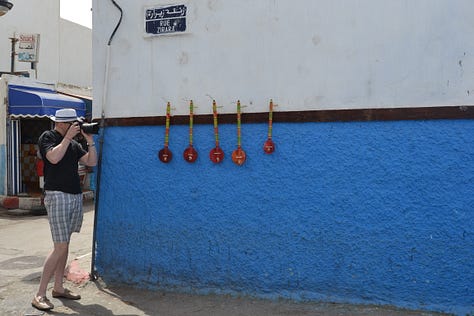
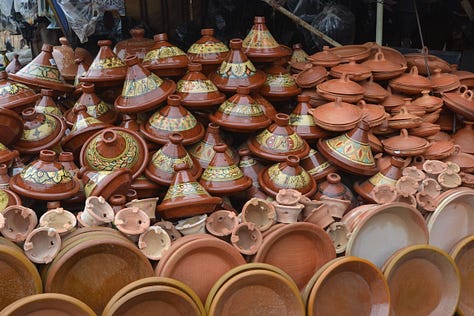
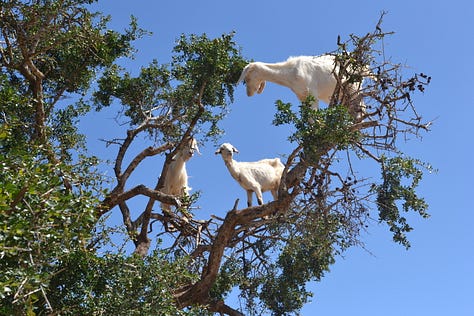
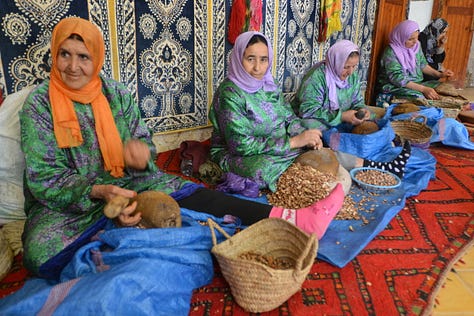

We went over a decade ago, on our honeymoon. We spent two weeks traveling across the country, moving through different landscapes and ways of being hosted. Every interaction held its own special meaning, and together they made us rethink what it means to feel welcomed.
What I carried with me was the feeling that each experience had been carefully shaped. Not in a curated or performative way, just thoughtful and rooted in genuine attention. It gave me a new lens for thinking about how we invite others into space, whether that's in travel, in work, or in life.
We stayed in a range of places during those two weeks, each offering something unique. At Dar Ahlam, a restored kasbah in the Skoura oasis, there were no printed schedules or standard dining rooms. When it was time to eat, someone would quietly guide us to a new space each time: a rooftop, a candlelit corner, a courtyard hidden under trees. Every detail was intentional, but never explained.
We spent a night out in the desert as part of the stay. A sandstorm rolled in just as we arrived, but the staff moved calmly, guiding us to our tent without any sense of rush or inconvenience. When we returned to the hotel, management had heard about our experience. Despite us not asking for anything and being perfectly fine with how things unfolded, they surprised us that evening with dinner in their garden under the stars, surrounded by hundreds of candles. It wasn't their fault—it was just nature—but they wanted to create something special anyway. That gesture could have felt excessive, but it didn't. It felt human, like someone had considered how we might want to feel and made space for it.
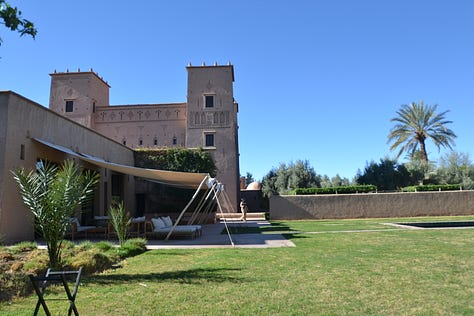
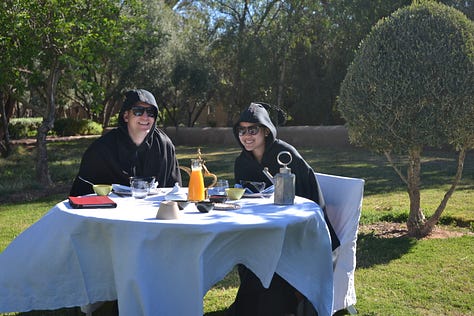
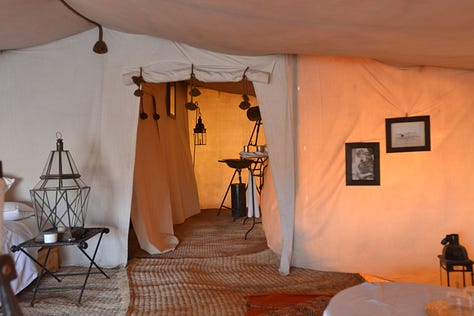
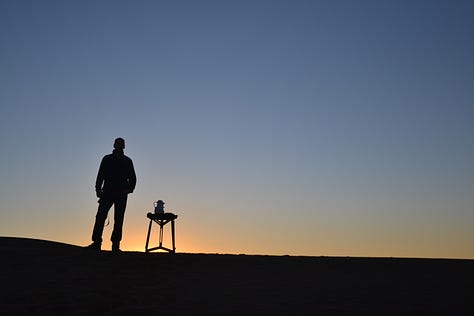
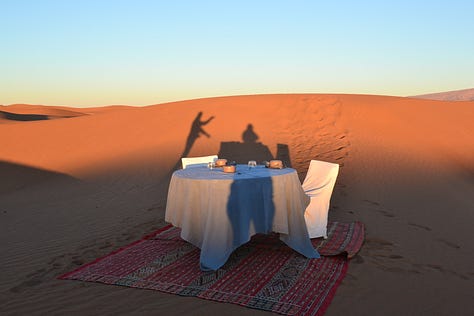
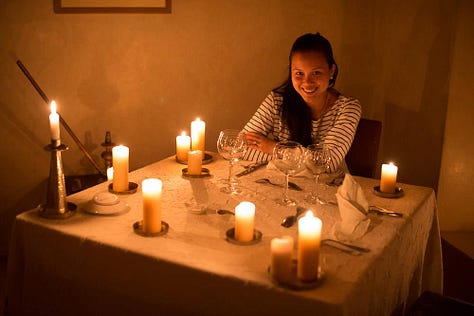
In Fes, we stayed in a riad and spent one morning walking through the market with a local chef, shopping for groceries to prepare a meal together. There was something profound about being immersed in the simple, everyday rhythms of life: watching how vendors arranged their spices, learning which vegetables were seasonal, understanding the quiet social dance of the morning market. It wasn't a tour or a performance. It was an invitation into daily life, and that felt like the deepest kind of hospitality.
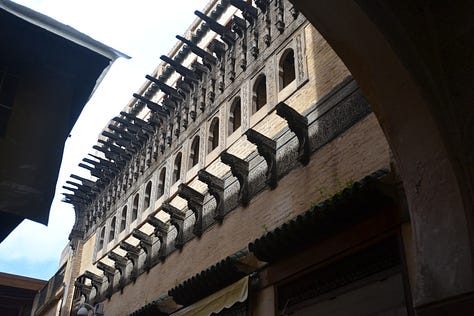

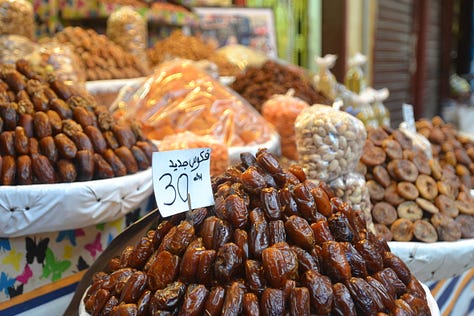
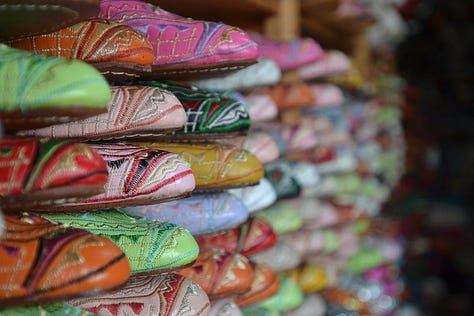
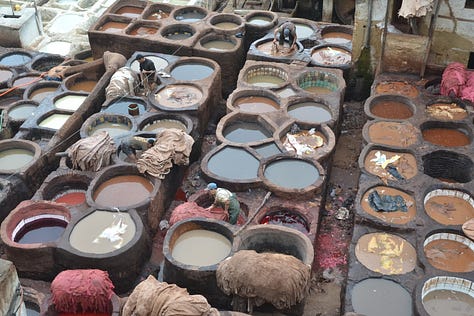
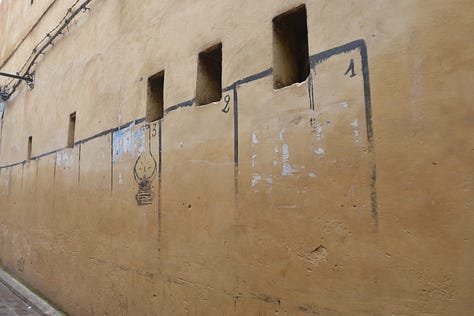
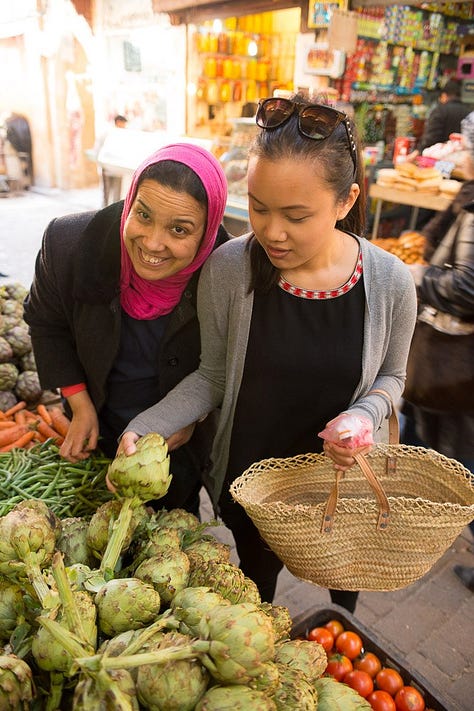
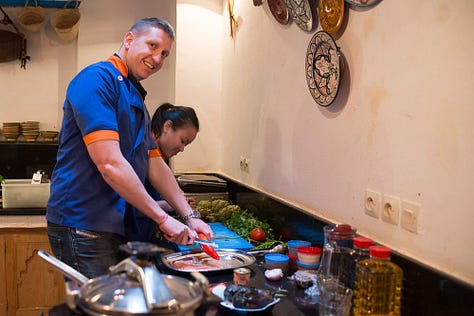

Even in Casablanca, visiting the Hassan II Mosque (one of the largest in the world, built partly over the Atlantic), our guide told us the roof opens during special prayers. Standing there, I could imagine what that would feel like: the sound of prayer rising into open air, the space filling with stillness as people gathered in faith. It wasn't just the architecture that left an impression, but how the space was designed to hold something larger than itself.
That kind of intention doesn't require explanation. You feel it.
Morocco helped me understand that experience isn't just about content or beauty or service. It's shaped by the pace you're offered and the tone that's set, by the details someone chooses to notice or prepare for. When those things are aligned, it creates the kind of memory that lingers quietly over time.
That mindset has quietly shaped how I approach work and leadership ever since. It shows up in how we plan meetings and bring people into teams, in how we set the tone for conversations. The question becomes: what does it feel like to be on the receiving end of what you've built?
What This Looks Like in Practice
When you're interviewing someone, how does the experience feel from the moment they walk in the door? Are you thinking about their comfort, not just your questions?
During a new employee's first week, what signals are you sending about belonging and how they'll be supported as they find their footing?
If you're hosting a gathering or leading a workshop, how are you preparing the emotional space, not just the logistics?
In your everyday conversations, where can you slow down enough to create room for genuine connection rather than just information exchange?
Designing for welcome isn't about making things perfect. It's about paying attention and thinking one step ahead so others don't have to. That kind of hospitality doesn't need words. It's felt in how you arrive, how you're guided, and how you leave.
Morocco gave me a reference point for how genuine welcome feels. I find myself returning to those lessons in how I think about welcoming others, whether in grand gestures or the smallest everyday moments.
Additional highlights: Essaioura∙Erfoud∙Marrakech (specifically, La Mamounia)∙Meknes∙Ouarzazate ∙Todra Gorge ∙Volubilis


